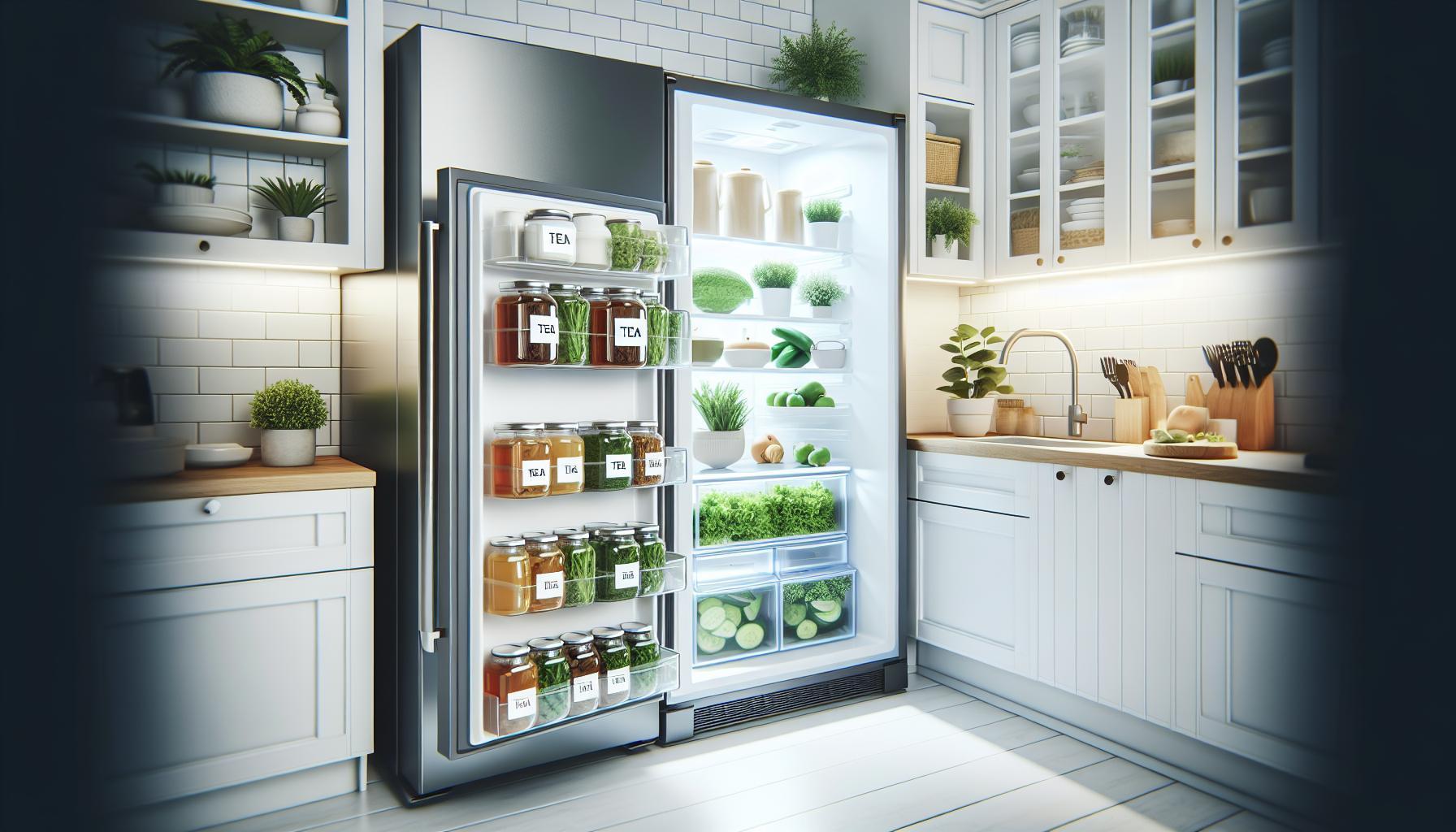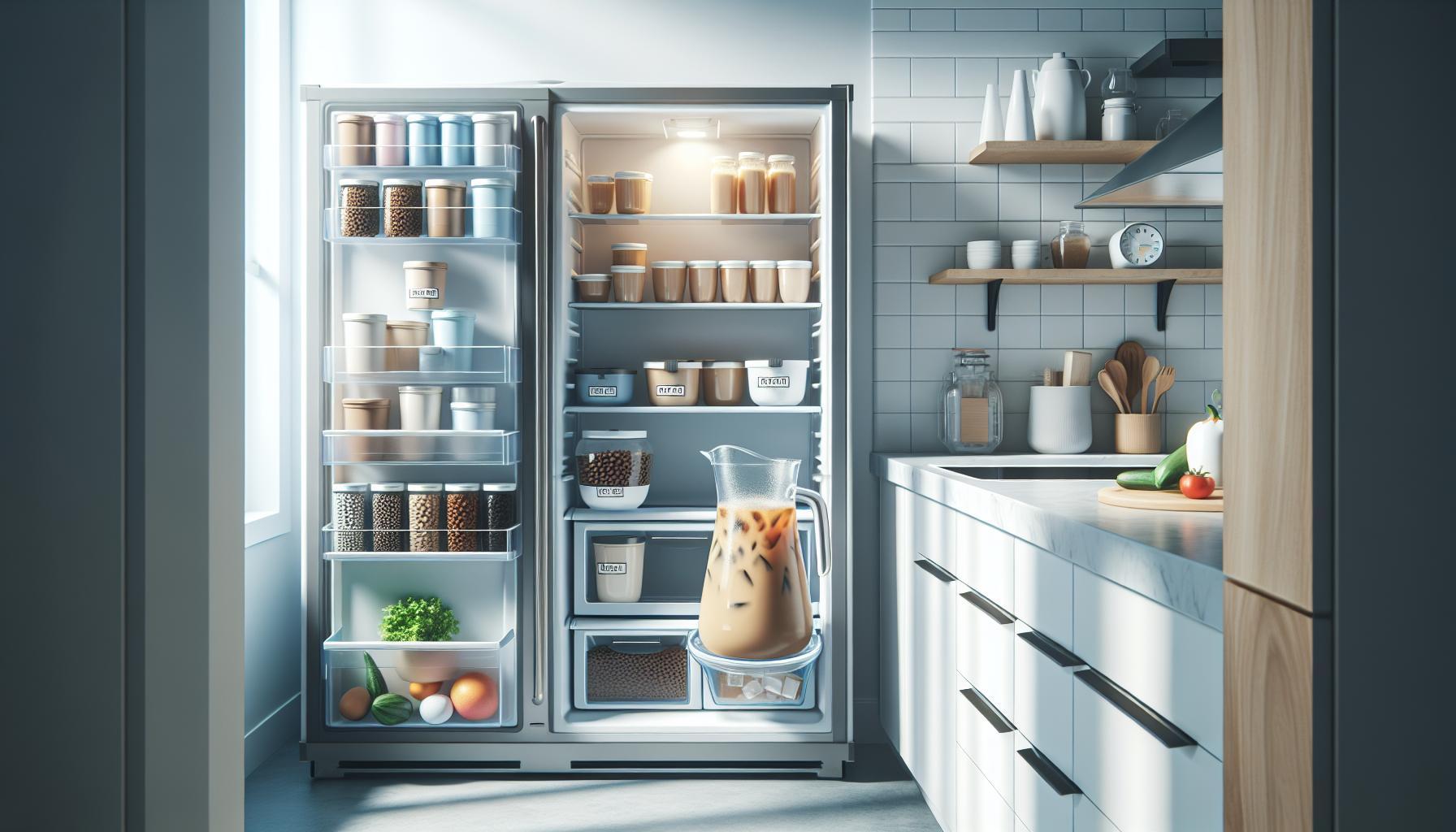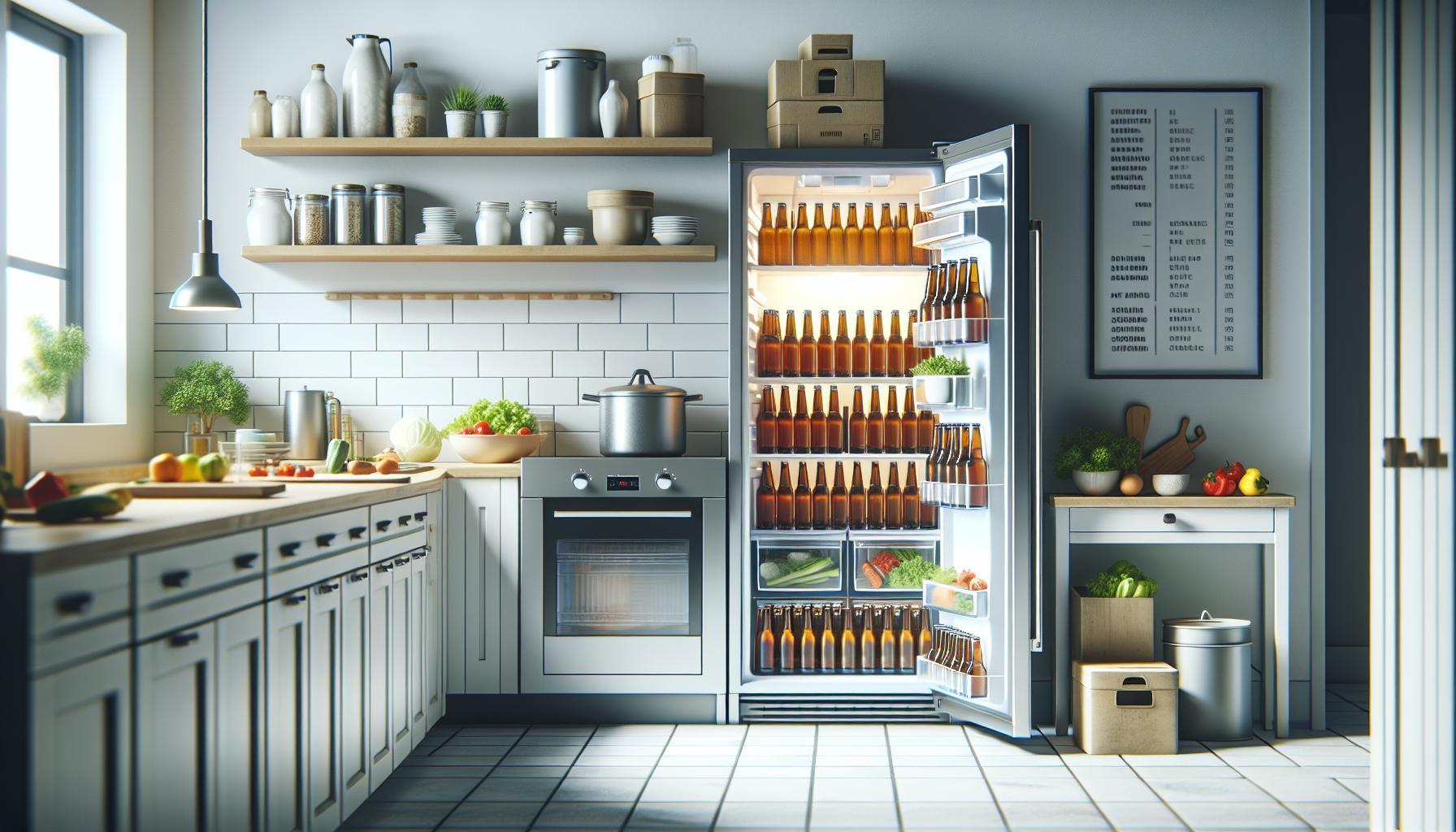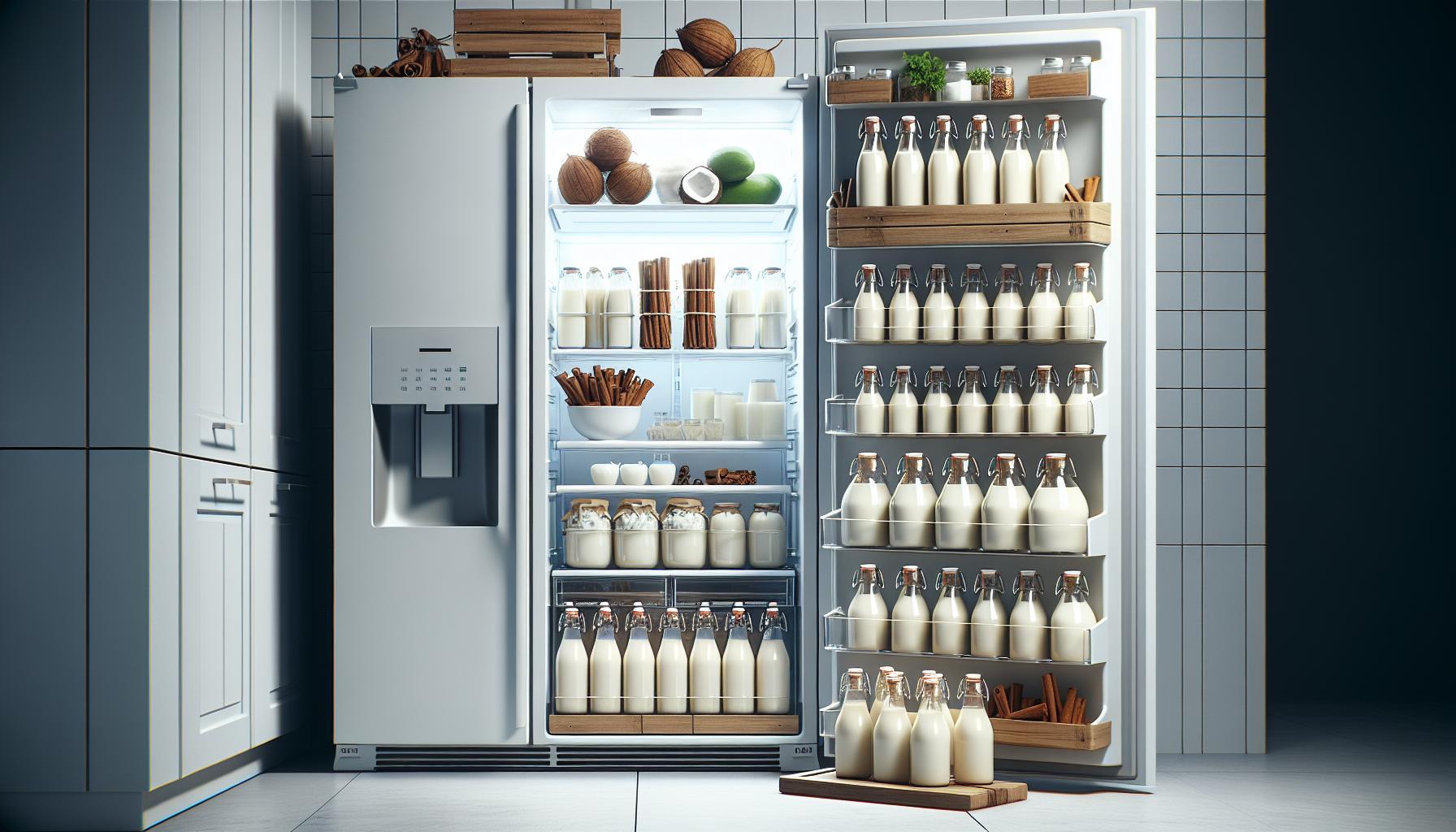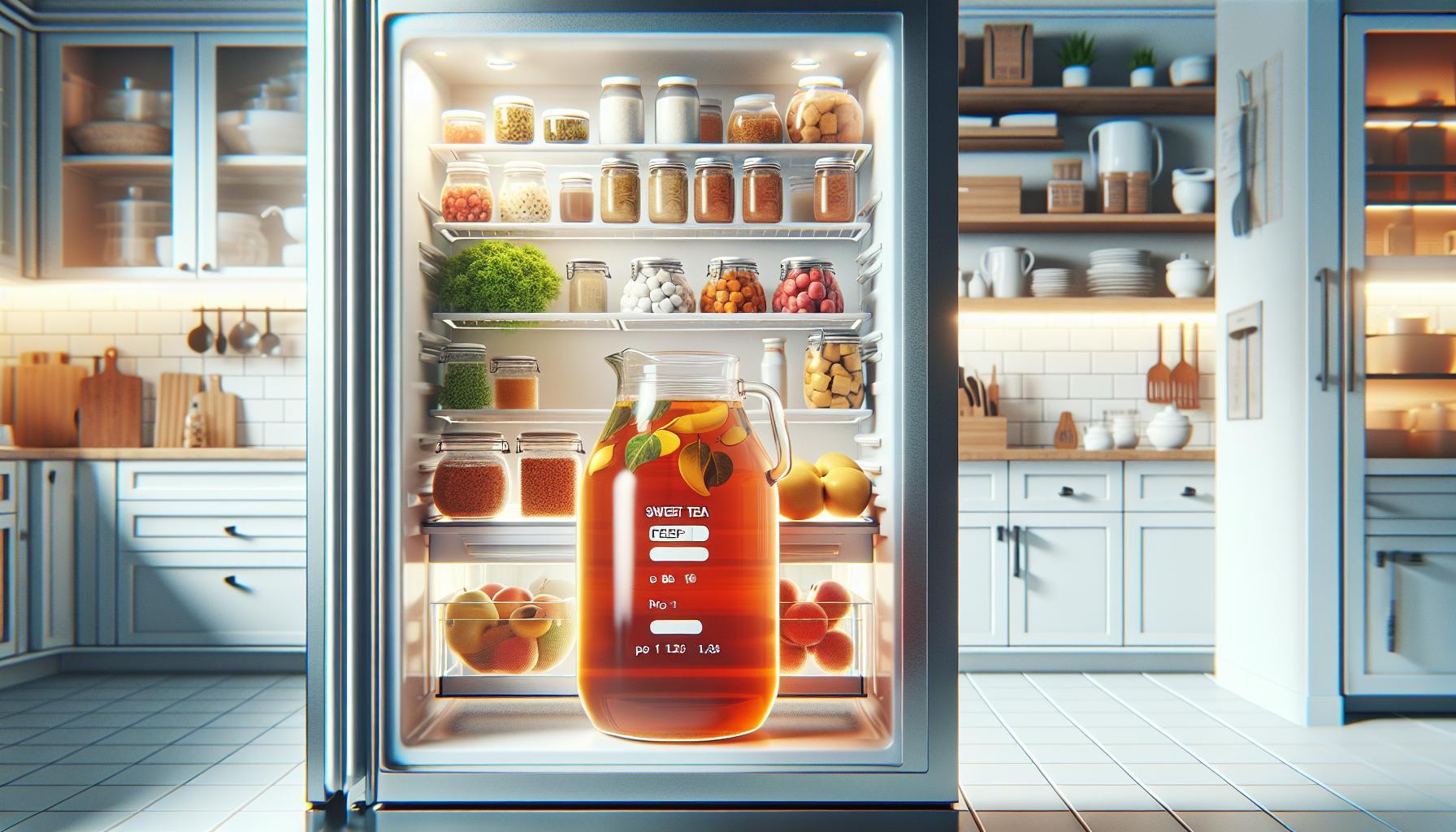Did you know that improperly stored tea can lose its flavor in just a few days? Understanding how long tea lasts in the fridge is essential for maximizing both its taste and shelf life. Whether you brew a refreshing iced tea pitcher or want to preserve leftover hot tea, knowing the right storage techniques can enhance your sipping experience while ensuring safety.
As tea lovers, we often brew more than we can drink, and it’s crucial to store it correctly to prevent waste. This guide will delve into optimal refrigeration practices, safety tips, and shelf life recommendations, enabling you to enjoy your favorite beverage at its best. By the end, you’ll be well-equipped to make informed decisions on tea storage so that every cup delivers the delightful flavor you expect. Keep reading to discover how to extend the life of your brewed tea effectively!
How Long Can Brewed Tea Last in the Fridge?
Brewed tea can make a refreshing addition to your fridge, but keeping it there for too long can lead to a less enjoyable drinking experience. Generally, brewed tea can last up to 3 to 5 days when stored properly in the refrigerator. To ensure the best flavor and safety, it’s crucial to store the tea in a tightly sealed container, which helps prevent contamination and absorption of odors from other foods.
The longevity of brewed tea can also be influenced by how it’s prepared and the type of tea used. For instance, herbal teas might have a somewhat shorter shelf life compared to black or green teas due to their unique ingredients. If your tea contains additional ingredients like milk, citrus, or sweeteners, it’s advisable to consume it within 1 to 2 days to minimize spoilage risks.
When considering whether to keep brewed tea longer than the recommended time, it’s important to note that flavor degradation is common. Tea may begin to taste stale or bitter after a few days, especially if it’s not shielded from light or fluctuating temperatures. Always use your senses-if the tea smells off or has an unusual taste, it’s best to discard it. So, while it’s tempting to hold onto that refreshing brew, adhering to these guidelines will ensure you enjoy your tea at its best!
Understanding the Flavor Profile of Refrigerated Tea
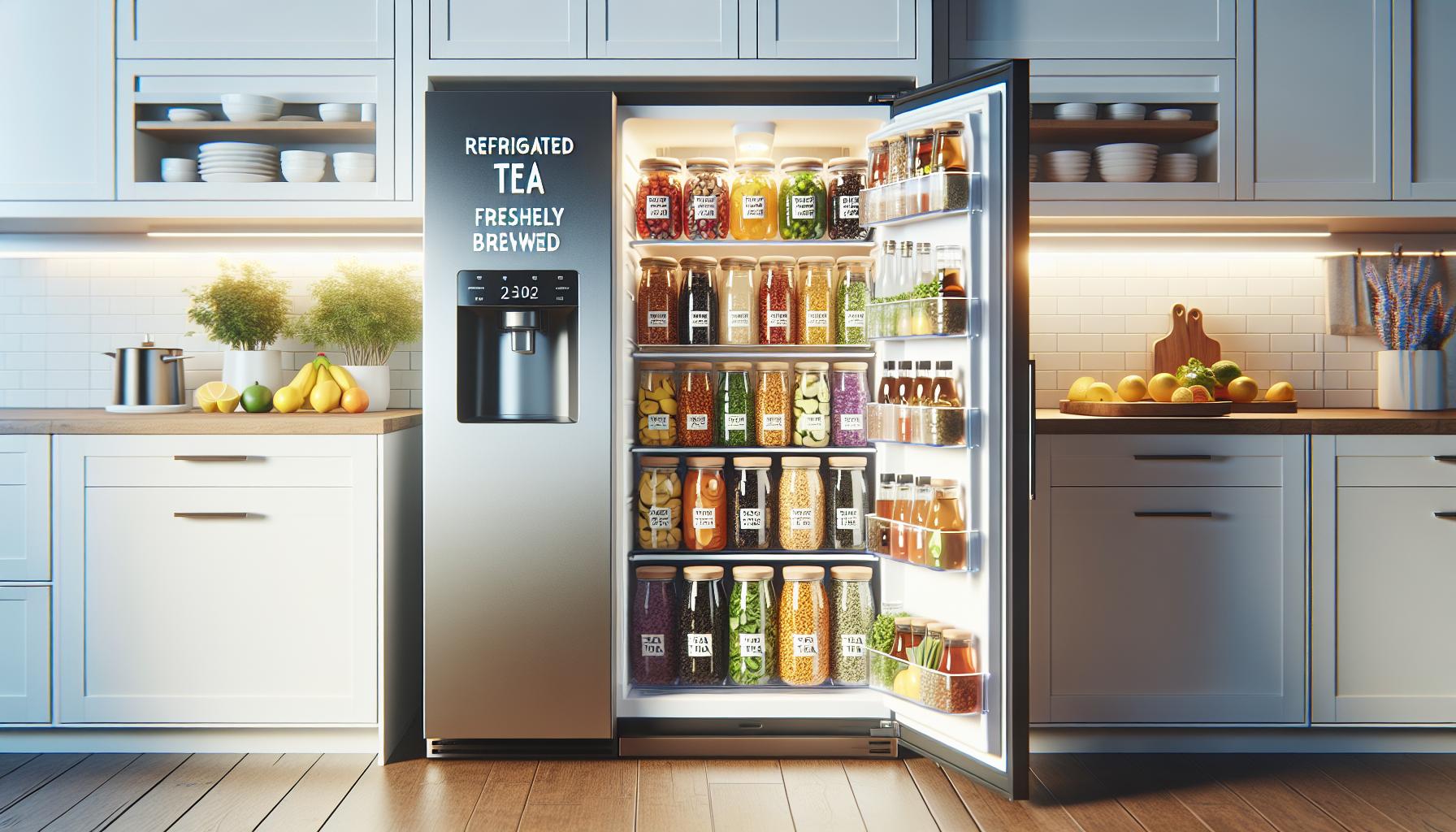
Brewed tea has its own unique flavor characteristics, which can be significantly altered when stored in the fridge. As tea sits, especially if it’s refrigerated, its flavor profile can develop in complex ways due to factors like oxidation and the release of volatile compounds. The initial comfort of a fresh cup can diminish after a few days, leaving the liquid tasting lifeless or even bitter. Understanding these changes allows tea lovers to make informed decisions about consumption and storage.
The flavor profile of refrigerated tea varies based on the type of tea and its ingredients. For example, green and white teas, which are generally more delicate, can lose their nuanced flavors more quickly than robust black teas. As a rule of thumb, if your refrigerated tea has an herbal component-like chamomile or peppermint-it may have a shorter shelf life due to the breakdown of those herbal notes over time. Additionally, if your brewed tea includes additives like milk or sugar, it is prudent to consume it within 1 to 2 days to maintain both safety and flavor integrity.
To preserve the best flavor, proper storage is essential. Use a tightly sealed container to prevent the tea from absorbing odors from the fridge, which can skew its original taste. Avoid exposure to light and fluctuating temperatures, as these conditions accelerate flavor degradation. If your refrigerated tea begins to smell off or displays a cloudy appearance, these could be signs that it’s past its prime, and it’s best to err on the side of caution by discarding it.
In the realm of tea enjoyment, freshness is crucial. While some may be tempted to hold onto brewed tea for too long, it’s beneficial to enjoy it within 3 to 5 days of preparation. Considering these factors not only enhances your tea-drinking experience but also ensures safety and delight in every sip.
Signs Your Refrigerated Tea Has Spoiled
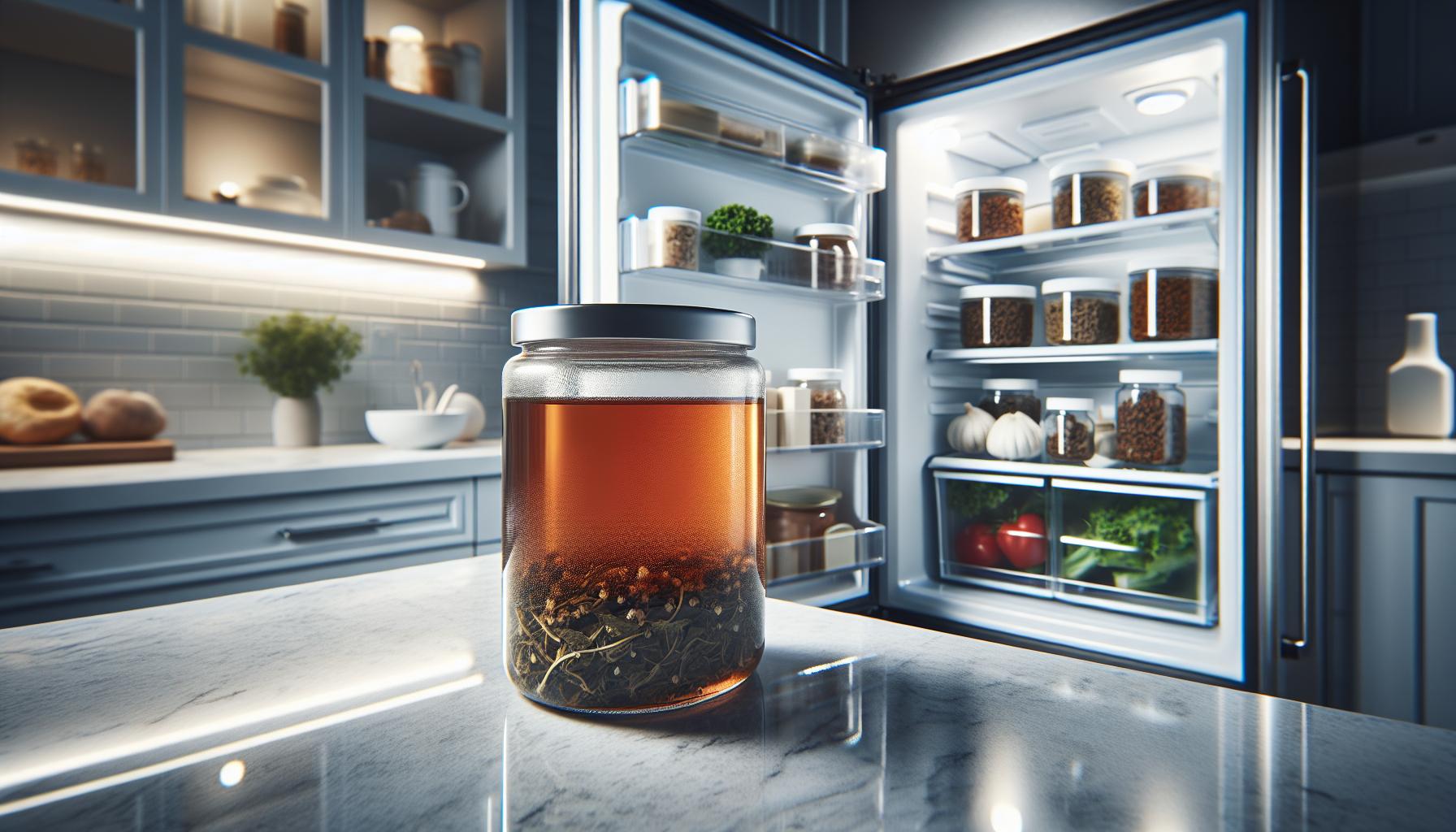
Brewed tea is cherished not only for its diverse flavor profiles but also for its refreshing nature. However, when stored in the refrigerator, certain signs will signal that it has reached the end of its shelf life. Recognizing these indicators is crucial for ensuring both safety and enjoyment in your tea experience.
Common signs that your refrigerated tea has spoiled include a noticeable change in odor and appearance. If your tea starts to emit an off-putting or sour smell, it’s a clear warning sign that bacterial growth may be occurring. Similarly, if you notice any cloudiness or floating particles in the liquid, this could indicate that the tea has begun to ferment or develop mold, making it unsafe to consume.
Another aspect to watch for is the taste. Upon sipping, if the tea tastes significantly bitter or stale compared to its original flavor, it’s likely past its prime. This degradation can happen quickly, particularly with delicate teas like green or white teas, which typically have shorter shelf lives compared to more robust varieties like black tea. As a best practice, remember to consume your refrigerated tea within 3 to 5 days to enjoy its intended freshness and flavor.
To avoid confusion, always label your tea containers with the date they were brewed. This simple step can help you track freshness and make informed decisions about what to enjoy and what to discard, ensuring a safe and delightful tea drinking experience.
Best Storage Practices for Maximizing Tea Freshness
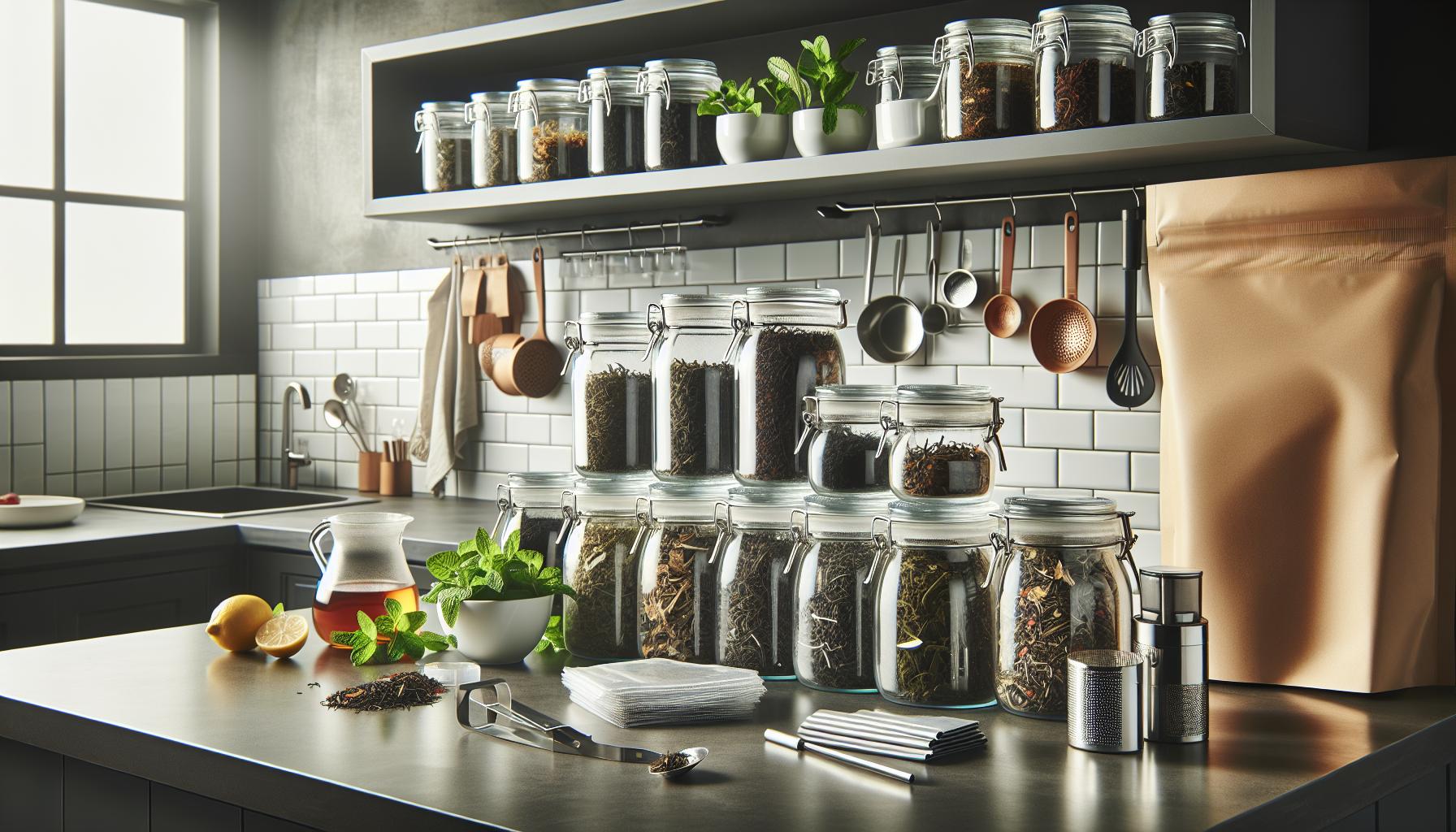
Brewed tea can bring refreshment and flavor to your day, but to maintain its quality, proper storage is essential. Storing tea in the refrigerator can help prolong its freshness, but certain best practices can enhance this effect. Here’s how to maximize the longevity and taste of your refrigerated tea.
Start by using an airtight container to store your brewed tea. This minimizes exposure to air, which can cause oxidation and lead to stale flavors. A glass jar with a tight-sealing lid or a vacuum-sealed container works beautifully. Whenever possible, choose dark-colored containers to shield the tea from light, which can also degrade its quality. Placing your container in the coldest part of your refrigerator-usually near the back rather than in the door-will maintain a more consistent temperature and extend freshness.
It’s crucial to avoid adding sweeteners or flavorings before refrigeration, as these can promote bacterial growth and spoilage. Instead, consider adding sugar, lemon, or other ingredients when you serve the tea. Remember to label your containers with the date brewed, and aim to consume your refrigerated tea within 3 to 5 days. Regularly check for signs of spoilage, such as any off smells or unusual cloudiness.
Lastly, consider the specific type of tea when storing. Delicate varieties like green or white teas have shorter shelf lives compared to black teas or herbal blends. Experiment with small batches of different kinds to determine your preferences and how quickly you consume them. By following these strategies, you can ensure that your brewed tea remains flavorful and enjoyable throughout its refrigerated lifespan.
Does the Type of Tea Affect Shelf Life?
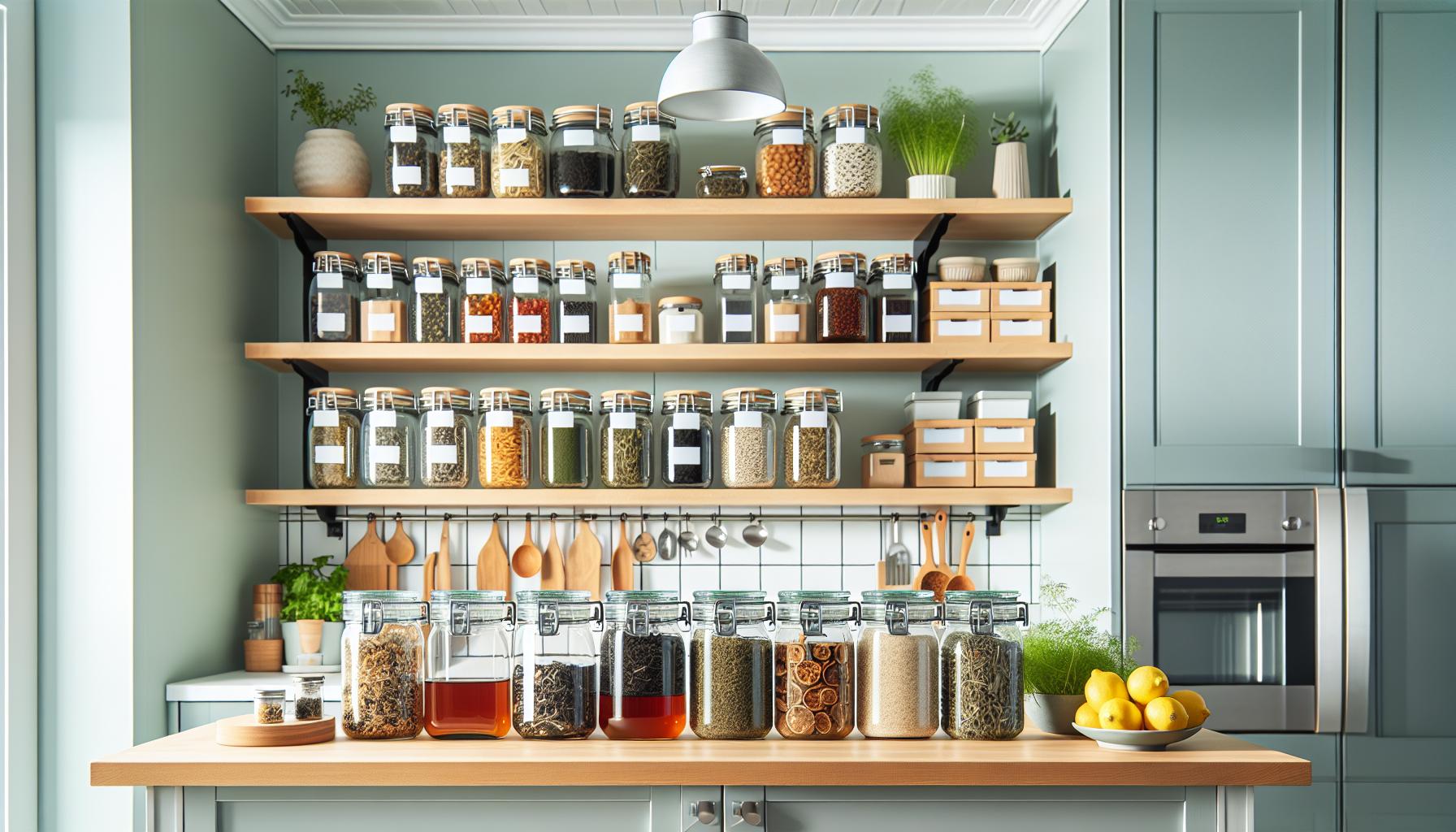
Different types of tea have varying shelf lives due to their inherent properties, production methods, and processing levels. Understanding these differences can help you make informed decisions on how to store and enjoy your brewed tea without compromising its quality. Generally, delicate teas such as white and green teas have a shorter lifespan compared to robust black teas and herbal infusions. This distinction is largely due to the oxidation levels and the volatile compounds present in each variety.
Short-Lived Teas
- Green Tea: Typically lasts about 3 to 5 days in the fridge. Its delicate nature means it can quickly lose flavor and aroma.
- White Tea: Similar to green tea, it has a shelf life of about 3 to 5 days once brewed. Over time, you’ll notice a decline in its subtle flavors.
Longer-Lived Teas
- Black Tea: Can last approximately 5 to 7 days when properly stored in the refrigerator. It is more robust and retains its flavors longer than lighter teas.
- Herbal Teas: Generally last around 5 to 7 days. However, their lifespan can be affected by specific ingredients, such as those that may spoil more quickly.
The presence of additional ingredients can also affect the shelf life of brewed tea. For instance, teas infused with fruits or dairy products tend to spoil faster than those without such additives. It’s best to consume these flavored teas within 2 to 3 days. By being aware of these distinctions, you can adjust your brewing and storage practices accordingly, ensuring that each cup maintains its intended flavor profile while remaining safe to drink.
How to Store Different Types of Tea Safely
When it comes to preserving the freshness and flavor of brewed tea, proper storage is essential. Not only does good storage practice extend the lifespan of your tea, but it also ensures that you enjoy every cup to its fullest potential. Start by using an airtight container, as exposure to air can lead to oxidation, which degrades the tea’s flavor. If you don’t have a dedicated tea storage jar, any clean glass or plastic bottle with a tight seal will work well.
For brewed tea, refrigeration is often the best option. Aim to transfer your tea into a glass or food-safe plastic container with a lid and refrigerate it promptly after brewing to prevent bacteria growth. Generally, brewed teas (depending on the type) will last between 3 to 7 days in the fridge. To maintain optimal flavor, consider labeling your container with the brewing date so you can keep track of its freshness.
When storing different types of tea, it’s crucial to consider their unique characteristics. For instance, delicate green and white teas should ideally be consumed within 3 to 5 days for the best taste, while darker, more robust black and herbal teas can last up to 7 days. To enhance their longevity, avoid mixing different teas in one container, as this can lead to flavor contamination. Additionally, if your tea includes perishable ingredients such as milk or fresh fruit, plan to enjoy it within a shorter timeframe-typically 2 to 3 days.
By understanding and implementing these storage techniques, you can make the most of your brewed tea, maximizing both flavor and shelf life while ensuring safe consumption.
Impact of Ingredients on Tea Longevity
When considering how long your brewed tea will last in the fridge, the ingredients used can significantly impact its longevity. While plain brewed tea generally maintains a solid shelf life of 3 to 7 days, the addition of certain ingredients can alter this timeframe. For example, if you’re infusing your tea with fresh fruits such as berries or citrus, their natural sugars and moisture can foster bacterial growth, thus reducing the safe consumption window to about 2 to 3 days. Likewise, incorporating dairy products like milk or cream into your tea creates an environment conducive to spoilage, recommending consumption within a very short period-usually within 1 to 3 days.
Additionally, flavored teas that include spices or herbs may also vary in shelf life based on their inclusion. Ingredients such as ginger or mint tend to preserve flavors and freshness better but can still be prone to spoiling due to their water content. If these ingredients are left in the tea, they can start to ferment or develop off-flavors past a week, so it’s best to strain them out if you intend to store the tea for longer.
To ensure the best quality and safety, consider the following guidelines for tea with additional ingredients:
- Fresh Ingredients: Consume teas with fresh fruits or herbs within 2 to 3 days to avoid bacterial growth.
- Dairy Additions: Iced teas with milk should not be stored for more than 1 to 3 days.
- Straining: Strain out any perishable components before refrigerating to extend your tea’s freshness.
By being mindful of what you add to your brewed tea, you can enjoy it at its peak and avoid waste, ensuring that every sip is as delicious and safe as possible.
Refrigerated Tea vs. Freshly Brewed: A Flavor Comparison
Refrigerated tea and freshly brewed tea each offer distinct flavor profiles and qualities that can influence your choice based on how you plan to use the tea. Freshly brewed tea, ideally consumed immediately after preparation, boasts vibrant flavors and aromatic notes that can be lost during storage. The essential oils and volatile compounds in freshly brewed tea are at their peak, ensuring that each sip delivers the intended taste experience.
On the other hand, tea stored in the refrigerator can develop a different character over time, which may or may not be desirable. While proper storage can maintain the tea’s overall flavor up to 3 to 7 days for plain varieties, the presence of additional ingredients like fruits or herbs can lead to altered flavors or spoilage. For instance, a freshly brewed mint tea might have a bold, refreshing taste, but after a few days in the fridge, the mint can become overly pungent or faded, and the tea may develop off-flavors due to oxidation or bacterial growth. It’s crucial, therefore, to understand that the longer tea is stored, the more it may diverge from its original flavor profile.
In terms of safety and enjoyment, the temperature and storage conditions play an essential role. Tea kept in a well-sealed container in the refrigerator remains at a stable temperature, reducing the risk of bacterial growth, but it’s still not a substitute for the fresh, aromatic experience of a cup brewed just moments before. To maximize enjoyment, try to consume refrigerated tea within the first few days, and be open to exploring new flavor combinations when brewing fresh, as the possibilities are almost endless.
In summary, while refrigerated tea can be practical for enjoying leftovers or preparing iced tea, freshly brewed tea delivers a superior flavor experience that is hard to replicate once the initial brew has cooled and been stored. Imagine savoring your favorite blend at its peak-this is why understanding the nuances between these two forms can enrich your overall tea experience.
Tips for Reviving Old Tea: Can You Do It?
Reviving old tea can be a worthwhile endeavor, especially when you’ve stored a batch that exceeds its prime. While it’s essential to recognize that the flavors won’t fully return to their original glory, there are ways to refresh stale tea and make it somewhat enjoyable again. First and foremost, assess the tea’s freshness and safety. If the tea has been in the fridge for more than 5 to 7 days, closely check for any off-putting smells or signs of spoilage, such as unusual colors or a slimy texture. If it looks and smells fine, you can consider proceeding with the revival methods.
One effective technique is to enhance the flavor by adding fresh ingredients. For example, consider infusing your old tea with fresh fruits, herbs, or a squeeze of lemon. These additions not only mask any stale flavors but also bring brightness and a refreshing taste to the mix. For instance, adding mint or basil can provide an aromatic lift, while berries can contribute a sweet-tart balance. Just be cautious to incorporate these extras gradually, taste-testing to achieve the desired flavor profile.
Another method is to transform your old tea into a new beverage entirely. Cold-brewed unsweetened iced tea can serve as a refreshing base for a cocktail or mocktail. Try blending it with soda water or kombucha to create a fizzy drink. Alternatively, consider using old tea as a base for tea-infused cocktails. Mixing it with spirits like gin or vodka and complementing it with complementary flavors can make for a unique concoction that breathes new life into once-stale tea.
Always remember that safety is paramount. If the tea shows any signs of spoilage or if you’re uncertain about its freshness, it’s best to err on the side of caution and dispose of it rather than risk potential foodborne illness. By being mindful of these practical tips, you can minimize waste and creatively revive old tea while ensuring a delightful experience.
Common Myths About Tea Shelf Life
Many tea drinkers harbor misconceptions regarding how long brewed tea can last in the fridge and what affects its shelf life. One prevalent myth is that refrigerated tea can last indefinitely, similar to unopened bottled tea. In reality, while refrigeration slows down spoilage, brewed tea should ideally be consumed within 5 to 7 days. After this period, not only may the flavor deteriorate, but harmful bacteria can also develop, posing a health risk.
Another common myth is that the presence of certain ingredients, like lemon or honey, extends the shelf life of tea. While these additions can enhance the flavor and provide antioxidants, they do not significantly alter the tea’s expiry date. In fact, ingredients such as fruit might spoil more quickly than the tea itself, creating an unhealthy mixture. It’s best to treat any brewed tea with added ingredients with the same caution as plain tea and stick to the 5 to 7-day guideline.
Additionally, many believe that leaving tea in an airtight container will prevent spoilage. However, while proper storage is critical for maintaining freshness, it doesn’t halt the natural breakdown of the tea’s compounds or the growth of bacteria. Instead, transfer brewed tea to an opaque, airtight container and keep it in the back of the refrigerator, where the temperature is most consistent. This practice can help minimize exposure to light and temperature fluctuations that can accelerate spoilage.
In summary, understanding the facts surrounding tea storage can enhance your tea experience and ensure safety. Being informed about these myths will empower you to enjoy your brews at their best and avoid potential health hazards linked to spoiled tea. Maintaining keen awareness of your refrigerated tea’s timeline is essential for retaining its flavorful character and ensuring a delightful sipping experience.
Safety Guidelines for Iced Tea Preparation
Making iced tea can be a refreshing way to enjoy your favorite brews, but safety should always be a priority in the preparation process. It’s essential to keep food safety practices in mind to prevent any risk of contamination or spoilage. When brewing iced tea, the temperature at which you steep your tea is crucial. Ideally, hot tea should be brewed at around 190°F to 212°F (88°C to 100°C) and allowed to cool down rapidly before being refrigerated. This rapid cooling helps minimize bacterial growth that can occur in warm liquid.
To ensure your iced tea remains safe and delicious, follow these guidelines:
- Use Clean Equipment: Always start with clean utensils, including teapots, pitchers, and glasses. Bacteria can thrive in unclean surfaces, so washing them with hot, soapy water is vital.
- Refrigerate Promptly: After brewing, cool your tea at room temperature for no more than 30 minutes before placing it in the refrigerator. This reduces the time your tea spends in the “danger zone,” a temperature range (40°F – 140°F or 4°C – 60°C) where bacteria can multiply rapidly.
- Store Properly: Use an opaque, airtight container to minimize exposure to light and air. This not only keeps the tea fresher but also prevents flavor degradation. Ensure your tea is stored in the back of the refrigerator where the temperature is most consistent.
- Monitor Shelf Life: Consume your iced tea within 5 to 7 days to avoid spoilage. If you notice any unpleasant odors, change in color, or sediment in the tea, it’s best to discard it to ensure safety.
Don’t forget to consider the types and amounts of ingredients added to your iced tea. Ingredients such as fresh fruit or sweeteners can alter how long your tea remains safe for consumption. For instance, citrus fruits may spoil faster than brewed tea and can introduce unwanted bacteria if not handled properly. When preparing iced tea, always prioritize your health by adhering to these safety guidelines, allowing you to enjoy your beverage worry-free.
FAQ
Q: How can I tell if my refrigerated tea is still good to drink?
A: To determine if your refrigerated tea is still safe to drink, look for changes in color, smell, or taste. If it has an off odor, strange sediment, or an unusual flavor, it’s best to discard it. Regularly checking for these signs helps minimize waste and ensures freshness.
Q: What are the best containers for storing tea in the fridge?
A: The best containers for storing tea in the fridge are airtight glass bottles or jars. These containers prevent exposure to light and air, which can degrade flavor. This helps maintain the quality and freshness of your tea and keeps it tasting its best over time.
Q: Can I freeze brewed tea to extend its shelf life?
A: Yes, you can freeze brewed tea to extend its shelf life. Pour cooled tea into ice cube trays or airtight containers, and freeze. This allows you to enjoy tea later while preserving flavor. Just remember to use it within six months for the best taste.
Q: Does adding milk or sugar impact the shelf life of refrigerated tea?
A: Adding milk or sugar can decrease the shelf life of refrigerated tea. Dairy products spoil faster, and sweetness can encourage bacterial growth. It’s best to add milk or sugar just before consuming to maintain freshness and prolong the tea’s usability.
Q: How long can I keep iced tea in the fridge before it goes bad?
A: Iced tea can generally be kept in the fridge for about 3 to 5 days. However, for optimal flavor, it’s recommended to consume it within 3 days. Proper storage in an airtight container can help maintain its quality longer.
Q: What factors contribute to the degradation of tea flavor in the fridge?
A: Factors that contribute to flavor degradation include exposure to air, light, and temperature fluctuations. Properly sealing tea in airtight containers and minimizing light exposure can significantly help preserve its flavor profile.
Q: Can I drink expired tea that’s been refrigerated?
A: Drinking expired tea that’s been refrigerated isn’t recommended. If the tea shows signs of spoilage like off smells or changes in taste, it’s safer to discard it. Always prioritize safety and quality when consuming brewed tea.
Q: How does the brewing time affect the shelf life of refrigerated tea?
A: The brewing time can affect the shelf life of refrigerated tea. Over-brewing can release more tannins, leading to a bitter taste and quicker spoilage. Aim for optimal brewing time based on tea type to maximize both flavor and shelf life.
In Summary
To ensure your tea remains both flavorful and safe to enjoy, remember to consume it within the recommended timeframe of about 3 to 5 days when stored in the fridge. Proper sealing in an airtight container is key to preserving taste and quality. If you’re looking to explore more tea tips, check out our guides on “Storage Solutions for Different Tea Types” and “The Best Methods for Brewing Iced Tea”-your next favorite tea experience awaits!
Don’t let your leftover tea go to waste; enjoy it while it’s fresh! If you have any questions or want to share your own tea storage tips, drop a comment below. For more insights into food safety and storage practices, consider signing up for our newsletter for regular updates and expert advice. Dive deeper into our site for additional resources and become the tea aficionado you’ve always wanted to be!

